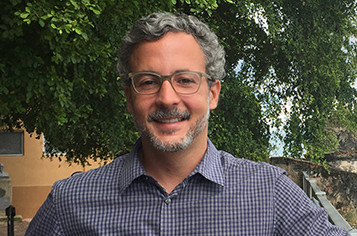Faculty members Professors Michael Baker and Gustavo Bobonis have both recently been awarded renewed funding to pursue their research. Baker is a Tier 1 chairholder in Economics and Public Policy, and Bobonis a Tier 2 in the Political Economy of Development.
We take the opportunity here to look at their respective research projects. Baker's research involves investigation of the catalysts of research and development investment in the private sector, and the influences of gender, height and childhood education on socioeconomic outcomes. Bobonis is evaluating the political, social and economic barriers to the establishment of good government, reliable states and successful society in Latin America.
 Professor Baker‘s research has direct relevance to public policies that aim to increase Canadian productivity, address inequities by gender and formulate the best design for early childhood education.
Professor Baker‘s research has direct relevance to public policies that aim to increase Canadian productivity, address inequities by gender and formulate the best design for early childhood education.
Why adult social and economic success varies by characteristics not clearly related to productivity or ability is an enduring puzzle of social science. Similarly, it is unclear how to best address the socioeconomic inequities we observe in adult populations—should policies be directed at children, teens or adults? Are the more effective policies aimed directly at kids or at their parents?
Baker is offering new insight into these questions, investigating both biological and environmental determinants of adult success, and connecting childhood experience with later-life health, learning and social flourishing.
Building on his previous work, Baker and his co-investigators are studying how the children who first enrolled in Quebec’s universal child care program fare as they enter the labour market, assessing whether the early childhood education gave them a leg up in earnings or employment stability. They are also extending recent evidence from Scandinavia of how women’s job changes after giving birth affects their earnings, and whether they are attracted to firms with family-friendly HR policies (which may come at a cost of lower earnings).
Baker is also investigating how private firms’ investments in research and development respond to government tax and grant programs, which have been developed to raise Canadian productivity and living standards. Finally, he is researching why outcomes such as levels of education or earnings vary so much across people’s heights below average height, but so little across heights above the average.
In each case, Baker’s work is directly relevant to public policy priorities in Canada and to existing inequalities in our economic and social success.
 Professor Bobonis seeks to provide evidence showing that emerging demoncracies in low- and middle-income countries can develop better government and policies through reform, which in turn supports human development.
Professor Bobonis seeks to provide evidence showing that emerging demoncracies in low- and middle-income countries can develop better government and policies through reform, which in turn supports human development.
Many developing countries have adopted democratic governments in recent decades. However, the shift has not always translated into better governments or more successful societies. Bobonis investigates the challenges involved in establishing good government. An influential researcher in economic and political science, with insights that help inform better policies, he is contributing to more prosperous and liveable societies worldwide.
He explores whether improving the effectiveness of governments can serve as a catalyst for society-level transformations. With large-scale field experiments in Brazil and Puerto Rico, he is investigating whether bureaucratic monitoring and improved organizational practices can affect the quality of political interactions and the performance of the public sector in developing democracies.
For example, he studies whether transparency initiatives can reduce patronage and vote buying in Brazil. Bobonis’ work will inform ways to discourage politicians and their representatives from trading favours or gifts that voters highly value (e.g., medicines, water), which results in politicians benefiting from households that lack access to resources or public services.
Similarly, he is evaluating organizational-level policies in the Puerto Rico education system, such as interventions among school principals and staff, with the goal of improving educational management as well as student and community outcomes.
Bobonis’ research helps to identify and evaluate barriers to good government with a better understanding of the political economics of state effectiveness – findings that provide new evidence for gradual reforms for improving governance and human development in emerging democracies.